Adapting To The Future With Mike Raven
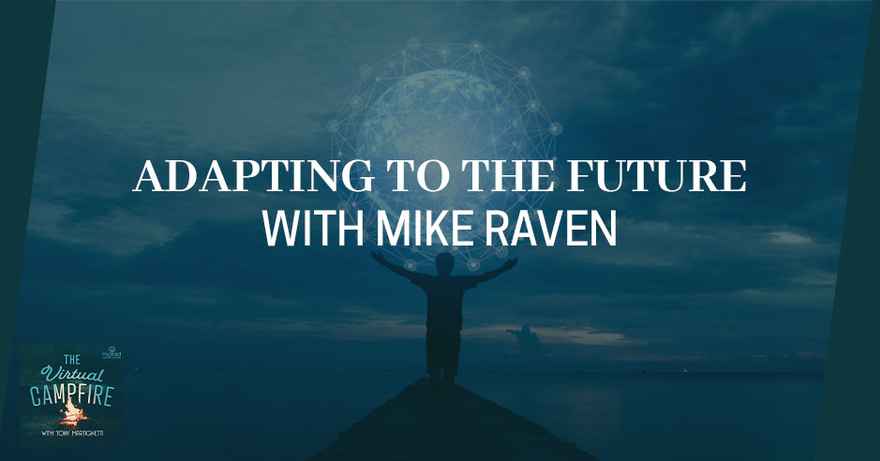
We live in an ever-changing world. In just a blink of an eye, your whole life can take a turn for better or for worse. Take the last few years for example. Not one of us expected the pandemic to come in and ruin so many businesses. During this time, companies were forced to pivot in order to continue making a profit, or even just to survive. This is why adaptability is so important because no one can predict what will happen next. Join Tony Martignetti and his guest, Mike Raven, co-founder of Leaps Innovation and AQai, as they further unpack this highly relevant topic. Learn why adaptability is so important and why we need it right now more than ever.
---
Listen to the podcast here:
Adapting To The Future With Mike Raven
It is my honor to introduce you to my guest, Mike Raven. He is a radical collaborator, a rapid researcher, speaker, sprints facilitator and entrepreneur. He's a holistic business graduate and practitioner, and a qualified naturopath. He is the Cofounder of Leaps, accelerating innovation for sustainable development goals using design style sprints. He’s also the Cofounder of AQai with a mission of improving humanity's adaptability at speed and scale to help ensure no one gets left behind in the fastest period of change we or any human has ever experienced in this and the next decade. Mike, I want to welcome you to the show. I'm looking forward to having you here.
Tony, it's an honor for me and a pleasure as well. I look forward to where our story goes.
I'm especially excited to talk about adaptability in this day and age, which is such an important topic. We're all dealing with that. We are in a pandemic. This is what we're living in. Adaptability is an important trait that we all need to embrace. Just so you know how we roll on the show, we tell your story through flashpoints. These are points in your story that have ignited your gifts into the world. We'll give you the floor to share that. We'll pause along the way and see what shows up and see what themes and ideas we want to play with. With that being said, Mike, I'm going to turn it over to you and let you get it started.
It's interesting how so many of us get stuck in the normality and the habits of day-to-day life, work, family, being present. We get very few opportunities to reflect back. This is why it's an honor to be here, having that opportunity to reflect on myself. If we can build more of this type of reflection into our lives that become habits themselves, it can only be a good thing because they're teachings. Sometimes some of the hardest and strangest times of our lives are our teachers in disguise. We need this time to realize those kinds of things. I had quite a privileged childhood. My father went from accumulating wealth and a lifestyle via stock brokering, but then in the space of a few months, we lost it all to protect a friend, which is a different story, a longer one. I went to moving three hours away to a tiny village or a small town even and running a local corner shop, collecting eggs from farmers and selling them door-to-door. They're interesting lessons that you're watching unfold as a kid.
We can go so much further as long as we decide not to seek comfort in the status quo.
I experienced people around me getting frustrated by the systems that they were in. That was felt by me as well. The education systems and the health systems that we were supposed to be part of didn't feel right. There are fewer flash moments. When I was fourteen, I happened to have a great teacher. We would sit and talk for a long time. I'd enjoy a lunch break at school where I got to chat with this guy. I was only 13 or 14. Through conversations with him, I decided where my initial career path was going. I could realize that these are such good questions. I also realized that I wanted to travel. Something hit me then of the power of good questions. That always stayed with me. It's one of the most important things we can teach future generations. I'm not lucky enough yet to be a father myself, but if I did and was offering any advice, it would be around learning to ask good questions.
It would be one of the most desirable skills of the future. That was a condensed youth. I did go traveling. I made it to Australia when I was eighteen. It was the furthest away I could get. I’m starting to learn life lessons. The difficult thing happened when I came back and went back into the education system, and into finding the highest paid job I could get straight off from college and university, which is what I was told to do because you've got debts to pay off and that's the way it works. I found a partner. We were saving for a mortgage. The career was going well.
When you talk about flashpoints, I can't tell you where they came from. It was very instant. I remember being in a corporate hotel, away from home, waiting for the next day of meetings. I was alone in my room and I had this out of body experience for the first time in my life. There were no substances involved. It just happened. I would describe it as a sudden jumping consciousness of realization. This was quite profound so much so that the next day, I handed in my resignation. The career was going well. I was working with some large global organizations and running lots of their experiential marketing strategies.
I took that money that I was saving for the mortgage. It became the fuel for learning for the next year and a half. I visited a number of countries including South America. I came across some incredible people from shamans and medicine people to ethical entrepreneurs. I discovered a whole new world of what purpose and business looks like and what a good life can look like. I remember a shaman that I met in Honduras. He spends a month every year in the jungle, fasting in a treehouse. I didn't have access to these stories and narratives of what the human mind, body and our whole race were capable of. We all know what we're capable of in a negative sense because we're taught history from a certain lens, but going on your own adventure is an adventure that everyone needs at least a few times in their lives, if not as many times as you can possibly get.
That helps you discover what your purpose is or what it might be, what the options are even. That led to me trading to become a naturopath that was about heeding myself, understanding the connection between our gut and our mind. That was a great journey in itself. I always told myself, “This wasn't about a career. It was about self-healing, self-love and the ability to be able to help one other person one day and that would be enough.” That stayed with me. I've tried to keep up my learning in that field because it's so interesting. The latest one has been a wonderful documentary called Earthing. It’s about the fact that we've lost our connection to the Earth because we wear so many clothes and rubber shoes. There's such an electrical connection with the Earth. Everyone can feel it especially when they're bare feet. You can now get these Earthing sheets for your bed. It's incredible. I recommend anyone looking into that. It's a wonderful documentary.
I sidetracked a little. In my story, once I started to get a bit clear on my purpose which was around this idea of our consciousness. What does that mean? How can we develop that? How can I evolve myself and support the collective consciousness evolution so that we can change the world for the better? Not just for your life or for the people who you love, but for all living beings because we've got an opportunity to do some wonderful things or to go down the current path that we're on and create more damage.
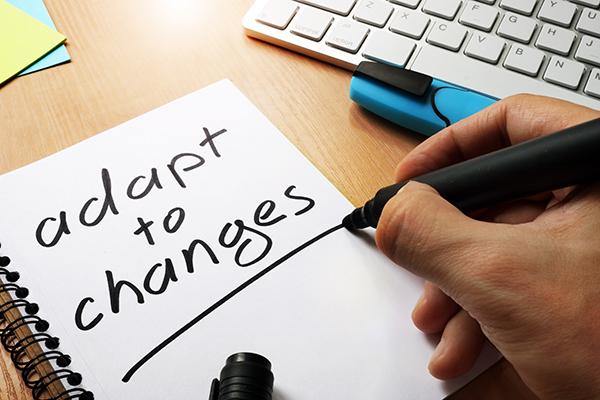
I saw that as a clear path on how can we become more compassionate, connected and caring. That eventually led to more resilience and adaptability, which is my calling now. This idea of not how we do this, but who do you need to collaborate with for these things to happen. Rather than this individualism, it's about inspiring progress through collaboration and unity. The most important who for me, having traveled, was who am I going to work with who sees the world in a similar way? I found a guy, Ross. We started two businesses together. We have a similar view of uniting humanity and doing some important things for the biosphere, for humanity and all living beings but doing it in a collaborative and fun way.
You've probably heard this wonderful idea. It's an Indian-American piece around you always think seven generations ahead in any decision you make, but it needs to go further. If we want to, we have the ability to allow society to flourish for hundreds of more generations to come. Once you get a bit of clarity on why you think you might be here and what unique abilities you can bring to the show, everyone's got some. It may be one wonderful, unique ability. Some people have many, but if you can hone in on that and say, “Here's mine, I'm not going to try and be something I'm not. I'm going to collaborate with people that help fill that puzzle and help fill that jigsaw to create the picture we're looking for,” that could be exciting.
There are many things about your story that I want to unpack. I love your lens of the world because it's so unique in the way you look at it. The fact that I can see you and you have these tinted glasses on, it makes me think of lenses that you're seeing the world. It's different.
I’m trying to get better sleep. For some reason, my deep sleep which I track on this funny ring that I wear on my finger has told me that I'm getting about half as much deep sleep for some reason. Maybe it's the time of year. Maybe these glasses will help.
What I'm getting a sense of from you is there's a sense of a connection to the past and the Earth, but also to the future and embracing technology. I also wanted to respect the experience that you witnessed as a child. There are many things we are witness to as children that impact how we show up in the world. Seeing that all things that we get and gain from a material world could be temporary. You have to be willing to let go of all of those things and see what shows up after. It seems like that experience has truly impacted your approach to how you look at the world in the sense that you don't see the monetary gain, it's what can we gain for the future? What can we gain for the world? How can we gain experiences that will allow us to build a better future?
If we choose to evolve all the different facets of adaptability, we can emerge together to create the most extraordinary civilization in history.
The one last point that I'd love to have your thoughts around is this adaptability. I thought about adaptability first around one person's experience, but I'm thinking about it more naturally. It’s about how we adapt as people as a whole. It’s not just about the adaptability in a situation, but adapting over generations, which is something that you brought to bear. That's an interesting concept. I'd love to hear your thoughts about that.
There's a lot of talk at the moment. Your eyes always see and your ears only hear what your mind is looking for. If you're looking for adaptability, you’ll find it everywhere. It's in the news, it's in the media, it’s in the stories, it's happening in your own life, it's happening right now. We've always done it as a whole community, as a whole species, let alone individuals. We've been adapting. There's a difference where we've had time to adapt before. There's been a whole move to a different infrastructure when we're moving from the agricultural age to the industrial age. These things happened over a long period of time. We're okay with that. We're pretty good at that. I also have this lens of the future and I'm lucky to spend some time at places such as Singularity University in the presence of futurists who give you that unique sense of what's coming, how quickly that's coming and how different that story is to the mainstream story that's out there.
We're used to seeing all this new technology and change is still science fiction. We could either choose that Mad Max future or that Star Trek future. The whole adaptability thing is so interesting. Going back into history, you can look back at some of the most advanced civilizations that we've had on this planet, the Egyptians, the Mayans and the Romans did so much so quickly. They reached a point and things were changing quickly, “What do we do?" They weren't able to get over that incumbent mindset, that fear of change. What you do then is you double down all the stuff you've already done. That's what every single society and major civilization has done. Every single time, it's culminated in a dark age. There is this deep sense in me and the whole adaptability movement that senses and understands this. We’re reaching what we see or might see as our perceived limit right now. We can go so much further as long as we decide not to seek comfort in the status quo, in what we've always done.
If we become more resistant to change and if we can make some bold decisions and ensure that our mindsets are flexible, I'm excited by what we can do. It does go against what we're hard-wired for. We're not hard-wired for the discomfort. It's when you lean into that discomfort that change happens. I'm sure you've experienced it, everyone has. When you think about times that they've developed as a person, it hasn't happened without discomfort. It can't have happened without discomfort. Sometimes you don't realize that you were in discomfort.
I'm thinking of this quote that comes to mind, “Fear can keep you from living a life.” There's this element of staying safe keeps you from living. It doesn't prevent you from this element of living life that you should be living. Instead of preventing death, it prevents life from happening. That's the one that comes to mind. We all need to adapt together or we die together. It's dire to think that way but it's true that this is not one person's journey. It's everyone's journey. As with climate change, the reality is we don't do something together then we can't make the impact that we need to live together in the future.
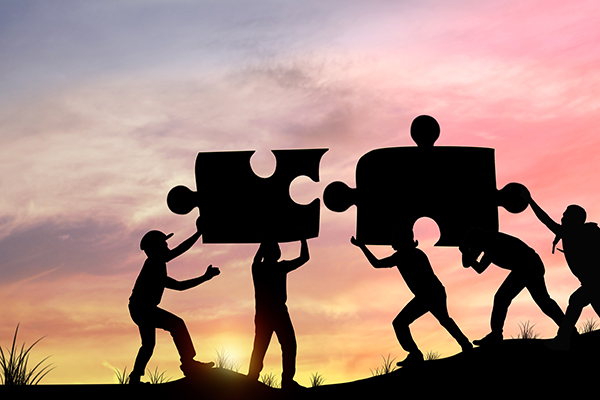
There are all these different facets around adaptability, whether it's our hope and optimism, our ability to unlearn, our mindsets, grit and resilience. If we choose to evolve those individual and sometimes group, collective facets and that consciousness, we can emerge together to create the healthiest, most extraordinary civilization in history. The interesting thing is that I do see that all being directly related to our AQ, this idea of our adaptability quotient. We have this one-pager that we've used for many years. It came from Strategic Coach, Dan Sullivan. That is the entrepreneurial coaching organization that Ross and I belong to that we get so much value from. It’s a collaborative group and community.
It's one thing called The Impact Filter. It's this one-pager that says, “What's the purpose of this project that you're doing? What's the biggest difference will it make? What does it look like when it's finished? What's the best result and what's the worst result?" We know what the worst result is. Lack of doing this can be the death of an organization, a project, a career, a person and society as we know it. We've got that in our hands. No one's going to put it on a plate in front of us. We can't sit there and wait for governments to do this. It's a challenge. We've got to be up for a challenge. It's not going to be okay to spend our lives on the sofa watching Netflix. We've got to be the change ourselves. It doesn't have to be this complete life change for people. It does go full circle to this idea of a little bit higher level of consciousness, of being aware of what's going on around you and taking time to reflect, to seek out gratitude and to think, “How can I be better?”
I want to take a step back to make sure the readers understand what the mission of AQai is after. What is your biggest challenge as you launch this business? At this point, it's still in the infancy stage or early stage. I hate to even call it a company. It's more of a movement.
I like to think back to the mid-'90s or maybe late ‘90s, I can't remember, EQ started to emerge, this idea of emotional intelligence. That spawned so many books, talks, companies, our ways of thinking about who we are, how we treat others, how we go about business, what does it mean to be an employee, how do I treat other people, and how do I feel about myself. We're at that point in AQ. I hope there will be a large number of people, movements and organizations that spawn out of this idea that our adaptability intelligence is as important as our EQ, if not even more important.
Our mission started through our previous company, Leaps. We were going into larger organizations and working with leadership teams and trying to look at how do we change things quickly. We're running sprints. That's quite a bit of appetite for change. The difficulty is sustaining it because we will have these immune system responses individually, as organizations and as teams that kick into play. We'd see some change in a short space of time. We then go back and find that it's gone back to normal. You’re thinking the same way that you used to think, and doing things the same way you used to do things. We know what will happen if you keep doing the same things. What's the block? We looked at adaptability and said, “If we need to improve this ability to adapt, we need to measure it. How do we measure it?” We went looking for this measurement and we couldn't find it.
Community is the idea of a world of creation rather than a world of extraction.
We dropped what we were doing and said, “We need to do this.” We went on that mission of who not how. We say, “Have we done something like this before?” “No, but we're ready to learn.” We found some incredible investors who believed in the mission and the movement so we could go deep into the research of adaptability, understand what it is, how to measure it and how to do that in a unique, truthful and enjoyable way that's valid and means something.
Once we've measured it, we can look at how do we improve it. If we can improve it at scale and speed, then we believe that we've got a chance to not only create the change that we need to see but also react to the changes that we can't foresee like a pandemic. That's been the last several years of our lives. It's pretty new. We've only started to go to market in 2021. We started to build a tribe of coaches and consultants within the movement who understand adaptability, and can start to embed it into the work that they do. It's about empowerment. That's how things start. You find a tribe, the people and organizations with aligned mindsets.
We have this thing that was taught by Strategic Coach called a mindset scorecard. We say, “What are our mindsets if we're going to collaborate with people? Have we got some alignment there?” That's a good exercise. Our mission is to unlock those secrets of adaptability and share them with the world, and improve our adaptability at speed and scale. We'd like to measure and improve the adaptability of a minimum of 100 million humans in the next decade. It's a big number to some people. For some people, it's quite a small number. I remember talking to the CEO of Singularity University who when we talked about the mission invited us in to say, "We want to help." I said, "I've got one problem. It's that number." "We know it's a big number." I said, "No, it’s way too small.”
I'm a huge fan of Gandhi. I think about this one man who impacted 390 million people. He's still impacting people now with his message that he had so many years ago. Many years later, he could have so much more impact. That’s just one person once you start building a lot of believers.
I read something. It was some scientific journal. It was talking about a number that discovered. It was the percentage of people in a room where they were required to see things the way they see things and have that alignment to be able to make something happen for that whole room. That number is in a room of ten people, it’s 3.14%. It's interesting that it is pi, especially if you've read the book Life of Pi, which is one of my favorite books. This idea that it suddenly makes everything achievable, especially if you're part of a movement. It's those 3 people in that 100. It's still going to be a challenge, but that's not difficult. The moment with the way the population is going, if we could get 200 million people around that number in the world, having understood their own AQ and be looking to improve it, then that knock-on effects would ruminate around the whole population or the whole species.
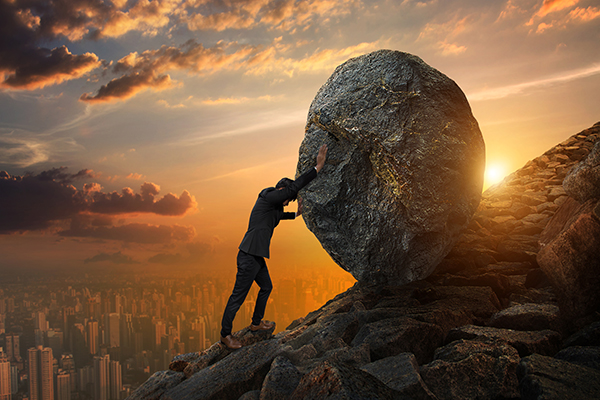
I'm taken aback by the ambition and the mission. There's so much power behind it. Anyone who's not feeling something around adaptability and seeing that that's something that they want to embrace, I can't imagine they aren't touched a little bit by that. I want to ask one more question that I always ask. What's one book or books that have impacted you along your journey that made you think differently?
There are so many. I'm a big reader. I could probably talk for an hour about 5 or 6 books that have made a massive impact on me throughout my life. I’ll try and pick one. It's called From What Is to What If by Rob Hopkins. I'm from a small town in Devon in the UK. That's where my dad had that corner shop. Down the road, 6 or 7 miles, there's a place called Totnes. It was the first transition town. If you haven't heard of transition towns, then look them up because there are hundreds now. This is about forming a real community from the ground up and hugely about conscious business, conscious education, a big focus on creativity and this idea of a world of creation rather than a world of extraction.
Right now, we live in a world of extraction. We're taking stuff as much as we can. Everyone wants to take, “What can I get out of this?” It's almost the first thing that people tend to think when they go into a relationship of any kind. If you can change that to, “What's in it for them? What's in it for the planet? What's in it for the species if we do this?” It changes everything. This book focuses on the crisis of imagination and what can we do about it. There's a great quote by one of my favorite writers, George Monbiot. He said that the climate crisis isn't a crisis of the environment and our actions. It's a crisis of imagination.
When you think about a lot of the challenges that we're facing, the small ones that you've got in your business or your lives through the major global problems and challenges that we're facing, it's a crisis of imagination, perhaps a crisis of adaptability. This book inspired me to think about imagination, creativity and community. He has a podcast. He gives some wonderful talks. There's been an explosion of this book. It's also got one of the most beautiful covers I've ever seen. It would make a good Christmas book for anyone. I don't know where the podcast is going out. That might be irrelevant. It's a wonderful read. It's a flowing easy read. I do recommend it to anyone. I challenge you not to be inspired by it.
I love you use the word inspired. That's my word. I don't even know where to begin with in wrapping this up because it's been a magical time with you. I can't thank you enough for coming on the show and sharing all of your insights and stories. I love your lens on the world. I'm looking forward to continuing to be in touch with you and seeing where this movement goes. Watch this space, everyone.
Thank you, Tony. I'm deeply honored to spend this time with you. It's been fun. We've got a real opportunity if we understand that everything that happens is a physical manifestation of our thoughts. That's where it starts. We can stop and we don't need to condemn those aspects of our lives or others' lives which we disagree with. We can seek to change them. That's not about hoping for better. It’s important to hope but just be better. Stop being more connected and more caring. Start being more disciplined with the choices that you make because that discipline can be incredibly powerful.
That's the message that we need to hear. How can people find out more about you and the work that you do?
We're online. www.AQai.io. There are lots of resources to be found there. We've got a ten-minute documentary film which was created by a wonderful guy. He's won multiple Emmy's, who wanted to make a film about what we were doing. That's a good place to start. There's a podcast series. That's on the website as well. It can be found on Spotify and all the other places that exist. Explore a bit. You can discover your own AQ through the website. There's a special deal on there going through this strange year. That's a good place to start. I love conversation. I love interesting people. Find me on LinkedIn and let's talk.
Thank you to the readers for coming on the journey with us. This has been such a great conversation. Thank you so much, Mike.
Thanks, Tony.
Important Links:
- Leaps
- AQai
- Singularity University
- Strategic Coach
- Life of Pi
- From What Is to What If
- podcast – Decoding AQ
- Spotify – Decoding AQ
- LinkedIn – Mike Raven
About Mike Raven
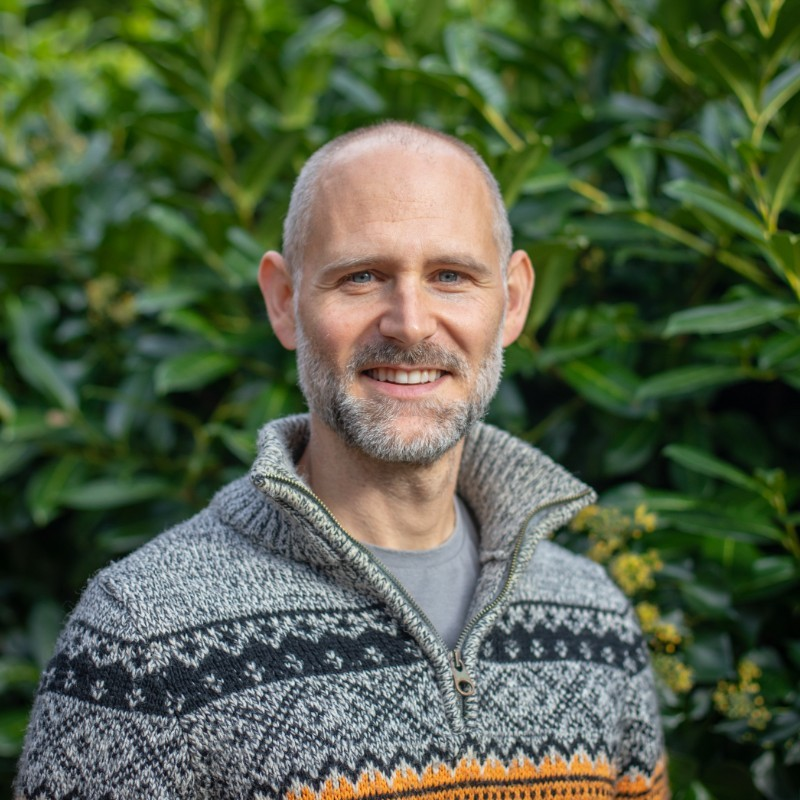 A qualified Naturopath and Nutritionist with a passion for responsibility-led holistic health and wellbeing. Driven by a desire to empower individuals and organizations to take fact-led responsibility for their own health and preventative care.
A qualified Naturopath and Nutritionist with a passion for responsibility-led holistic health and wellbeing. Driven by a desire to empower individuals and organizations to take fact-led responsibility for their own health and preventative care.


0 comments
Leave a comment
Please log in or register to post a comment